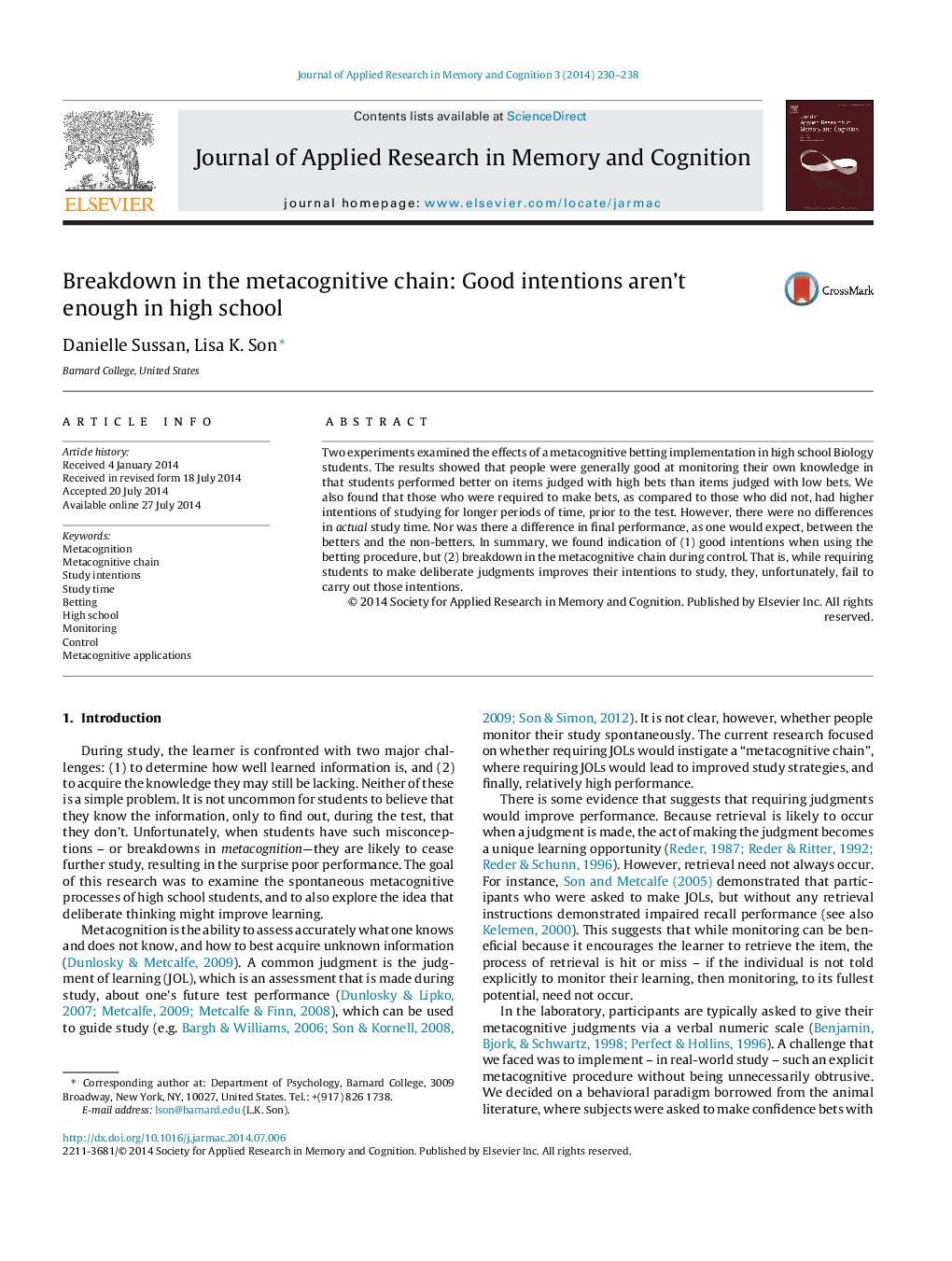| Article ID | Journal | Published Year | Pages | File Type |
|---|---|---|---|---|
| 881722 | Journal of Applied Research in Memory and Cognition | 2014 | 9 Pages |
•We implement a betting task during study within a high school Biology classroom.•Betters, as compared to non-betters, report that they intend to study more.•Actual study time does not differ between the betters and the non-betters.•A “metacognitive chain” of monitoring-control-performance breaks down at control.
Two experiments examined the effects of a metacognitive betting implementation in high school Biology students. The results showed that people were generally good at monitoring their own knowledge in that students performed better on items judged with high bets than items judged with low bets. We also found that those who were required to make bets, as compared to those who did not, had higher intentions of studying for longer periods of time, prior to the test. However, there were no differences in actual study time. Nor was there a difference in final performance, as one would expect, between the betters and the non-betters. In summary, we found indication of (1) good intentions when using the betting procedure, but (2) breakdown in the metacognitive chain during control. That is, while requiring students to make deliberate judgments improves their intentions to study, they, unfortunately, fail to carry out those intentions.
